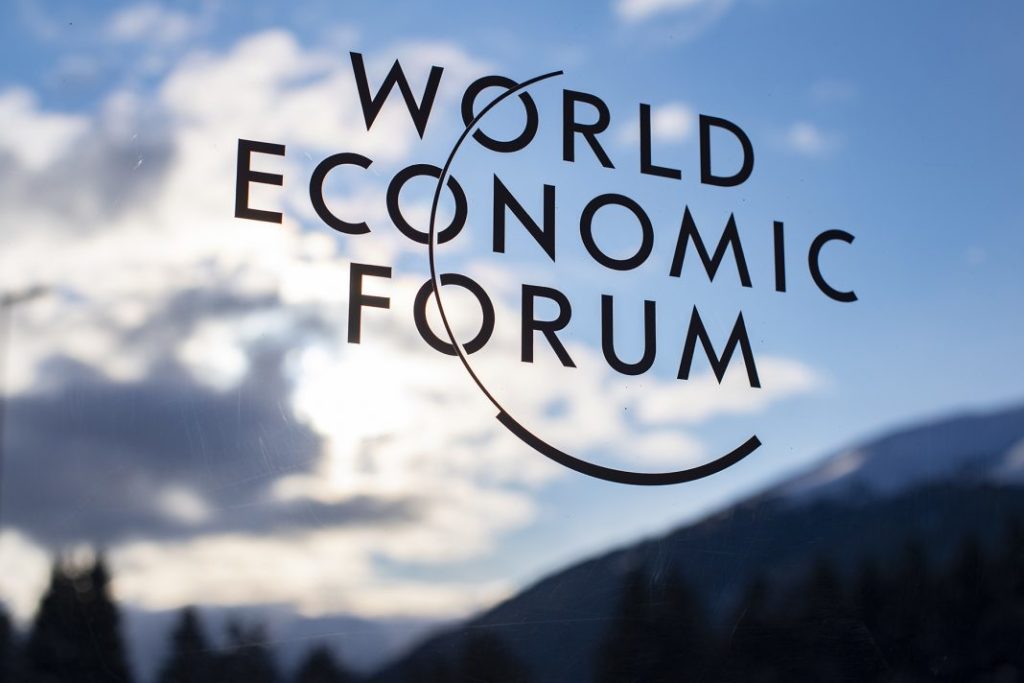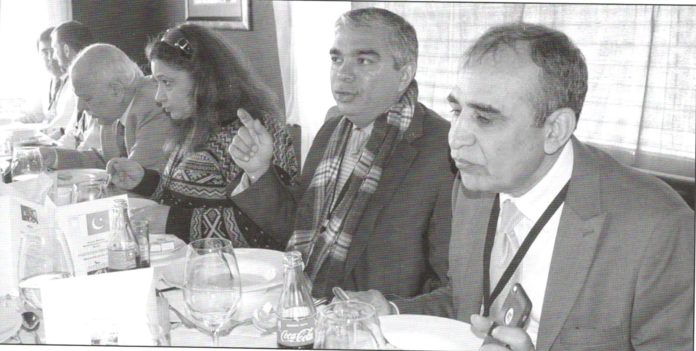The World Economic Forum (WEF)’s Annual Meeting in Davos, Switzerland, is a major creative force for engaging top leaders from across the world to undertake joint action relating to events for shaping the global, regional and industry agendas. Having attained a reputation for great integrity, the WEF is not tied to any political, partisan or national interests; it is “committed to improving the State of the World.”
Over 3,000 leaders from business (representing hundreds of WEF member corporate companies), government and international organizations, civil society and religious organizations academia, media and the arts converged in Davos from January 23-27. This year’s theme was “Creating a Shared Future in a Fractured World,” one of the aims being, “The fractures that have emerged politically, economically and socially must not foster intolerance, indecision and inaction. The 48th World Economic Forum Annual Meeting therefore aims to rededicate leaders from all walks of life to developing a shared narrative to improve the state of the world.”
Top global leaders, in addition to the U.S. President included rime Minister Shahid Khaqan Abbasi, Indian PM Narendra Modi, Italian PM Paolo Gentiloni, French President Emmanuel Macron, British PM Theresa May, Canadian PM Justin Trudeau, Argentina President Mauricio Macri, Brazil’s President Michel Temer, PM Norway Erna Solberg, PM of Sweden Stefan Löfven, and Lebanon’s Council of Ministers President Saad Al-Hariri. Among the Royals were King Abdullah-II and Queen Rania of Jordan, Queen Maxima of the Netherlands and Prince Turki al-Faisal of Saudi Arabia. The global business sector was represented by, among others, Facebook’s Sheryl Sandburg, Microsoft CEO Satya Nadella, Google CEO Sundar Pichai, Microsoft’s Bill Gates, Alibaba Chairman Jack Ma and IBM CEO Ginni Rometty were among the dozens of others.
PM Abbasi was accompanied by Foreign Minister Khawaja Asif, Minister Saira Afzal Tarar, Minister of State Marriyum Aurangzeb and Minister of State Anusha Rahman. Unlike last year when the then PM Nawaz Sharif did not address any of the 400 or more sessions, Shahid Khaqan Abbasi was among the five panelists who spoke at the “Belt and Road Impact” session on January 24. Pakistan is partnering China’s high profile initiative through the China-Pakistan Economic Corridor (CPEC); this focuses on improving connectivity and cooperation among Asian countries, Africa, Europe and China. PM Abbasi also interacted with heads of States and governments in a special session of the Informal Group of WEF leaders (IGWEL). Meeting with many government and business leaders in bi-lateral sessions his focus was on encouraging the private sector to invest in Pakistan.
PM Shahid Khaqan Abbasi was the Chief Guest at the traditional ‘Pakistan Breakfast’ hosted jointly by Pathfinder Group and Martin Dow Group. The PM was quite eloquent about the present economic and security situation, the geo-political changes taking place in adjacent regions, its effect on the region and Pakistan and what a game-changer and an economic force-multiplier CPEC is to Pakistan. What was very noticeable was his confidence and comfort, particularly in the Q&A Session. It was a great honour for Pakistan that the Chinese guests requested that their Ambassador in Geneva say a few words. The high point of the Pakistan Breakfast was the presence of Bilawal Bhutto Zardari. 24 years earlier, I was privileged to accompany his mother as her aide in Davos inside the Congress Center. I have never ever seen charisma like hers ever in Davos. PM Abbasi graciously acknowledged his presence; what a great day for democracy!

This year the Pathfinder Group and Martin Dow Group took a private sector initiative establishing a small but representative Pakistan Pavilion in the Greenhouse of the Hotel Panorama. The first in WEF history, the intent of the Pavilion was to showcase Pakistan’s image in a soft and positive light. This experimental initiative was a walk-in affair where Pakistani entrepreneurs/ officials in IT media, Financial Services (including microfinance and financial inclusion), philanthropy, etc. were available to interact with international investors, experts and officials. On both the days, speakers from Pakistan spoke about Pakistan’s economy, gender empowerment, law and order situation, etc. At the invitation of Ikram Sehgal and Jawed Akhai, Dr. Ishrat Husain journeyed to Davos to speak about the challenge and the opportunities in Pakistan. At a dinner at the Schatzalp on Tuesday among those who spoke were Shabbar Zaidi of Ferguson, Dr. Daniel Ritz of PTCL, Jerry Torres of AES Torres (USA), James Rubin former U.S. Press Secretary to the President, Dr. Marc Siegel of California (USA), Dr. Huma Baqai, Sidra Iqbal, Aamer Mahmood of CPNE, Ambassador Zamir Akram, SPD, Jawed Akhai and Zarrar. Among those who braved the cold were Saifuddin Zoomkawala, Editor Business Recorder Wamiq A. Zuberi and Fawad Rana.
Pakistan’s private sector was represented by Javed Akhai, CEO Martin Dow Chemicals, Hussain Dawood, Group Chairman Engro Corporation Ltd, Saad Hamid, CEO Demo Enterprises, Dr. Sania Nishtar, Founder and President Heartlife, my son Zarrar Sehgal Deputy Chairman Pathfinder Group and Ali Siddiqui, Vice Chairman JS Bank. Special Assistant to the PM, the person responsible for the PM’s visit to Davos. Davos presents a huge potential for Pakistan, it is imperative that Pakistani political and business leaders rethink the importance of participating in the WEF Annual Meetings. The global village has become increasingly inter-connected and fast-paced with technological breakthrough, demographic shifts and political transformations having far-reaching societal and economic consequences. With the world becoming so fluid and changeable, leaders will have to share real-time insights and innovations on how best to navigate the future and inter-act positively on a plethora of issues. Mostly bi-lateral meetings do benefit Pakistan but our negative image can only be erased by casting a longer “soft” shadow over the Davos world stage.
The overwhelming consensus among the world’s rich, powerful and/ or knowledgeable is that the WEF Annual Meeting at Davos truly remains the most important economic and socio-political event in the world calendar. The WEF’s mission to “improve the state of the world” means engaging top global leaders to collaborate in shaping the global, regional and industry agendas. Davos gets your narrative not only heard but understood, while going there is important, to make it happen you have to be heard in public sessions. A handful of Pakistani businessmen at Davos can never shoulder the burden of projecting Pakistan. Davos is a unique opportunity to showcase Pakistan. It is, therefore, imperative that our major business leaders use the Davos platform to be counted as the outstanding entrepreneurs they are.




